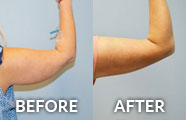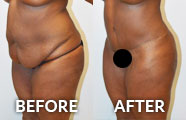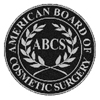Be sure to do your homework on the cosmetic surgeon with the best experience and results, says Southern Surgical Arts.
We’ve all heard the Latin saying, “Caveat Emptor” (buyer beware) but do we fully understand its meaning and more importantly, do we always strive to put it into practice and be aware as buyers? Simply put, caveat emptor means this; the buyer is at risk: there is a commercial principle that the buyer is responsible for ensuring that goods bought are of a reasonable quality, unless the seller is offering a quality guarantee. As consumers, it is our responsibility to do the research and put in the time before making a purchase for any product. But what about services, should the “buyer beware” before paying someone to perform a service such as a cosmetic procedure?
While it may not be the first thing on your mind when selecting a cosmetic surgeon, making sure that the surgeon or cosmetic surgery center you’ve selected are properly trained and licensed is of utmost importance to your satisfaction and safety.
In the field cosmetic surgery, there are governing boards put into place to act as a certain guarantor of a surgeon’s ability to perform your procedure with an exceptional level of skill, professionalism and care. These certifications are not easily gained; in fact, there are years of training, study and testing involved before a surgeon can truthfully call him/ herself “certified” in the area of specialty. Because there are many similar sounding governing boards, there is often some confusion as to which certifications qualify a surgeon to perform your elective cosmetic procedure.
The American Board of Medical Specialties (ABMS) is a not-for-profit organization that assists 24 approved medical specialty boards in the development and use of standards in the ongoing evaluation and certification of physicians. The last medical specialty the ABMS recognized was genetic medicine in 1991. In the past two decades, many specialties have emerged in the field of medicine due to technological advances and scientific research. Retina specialists, bariatric surgeons and breast oncology surgeons are three specialty fields of many that are not recognized by the ABMS but essential to the care of many people.
Cosmetic surgery, like retina and breast oncology, is another one of the specialties not governed or recognized by the ABMS. The governing board that does recognized the specialty of cosmetic surgery is The American Board of Cosmetic Surgery (ABCS).
The ABCS looks to ensure a cosmetic surgeon is:
Professional – Achieving and maintaining the highest professional standards in cosmetic surgery
Qualified – Establishing a method for the qualification of specialists in cosmetic surgery and a certification system
Skilled and Ethical – Providing training standards, and carrying out such goals and objectives in full compliance with all laws and regulations relating to equivalent surgical specialists
Board-certified cosmetic surgeons attain their expertise and knowledge by first undergoing traditional medical degree programs in medicine and surgery disciplines in dermatologic surgery, general surgery, facial plastic surgery, and oral-maxillofacial surgery. They, like any other medical professionals, have to complete extensive formal education degree programs that include undergraduate degree coursework, followed by four years of medical school and then another four to eight years of clinical internships and surgical residencies. Fellowship training in cosmetic surgery for an additional 1-2 years is then completed by the majority of cosmetic surgeons, who then apply to take the 2-day certifying exam given by the ABCS.
The American Board of Cosmetic Surgery is the only certifying body for board-certified cosmetic surgeons, and the ABMS recognizes the ABCS’s role in governing the proper qualifications of cosmetic surgeons. It is imperative to ask the right questions of any physician that one is considering to perform cosmetic surgery. One of the first questions should be, “Are you certified by the American Board of Cosmetic Surgery?”
At Southern Surgical Arts, both Dr. Carey Nease and Dr. Chad Deal are fellowship-trained and ABCS certified cosmetic surgeons. Dr. Nease is also certified by the American Board of Facial Plastic and Reconstructive Surgery, and Dr. Deal is certified by the American Board of Surgery. Together, they combine unsurpassed training, years of experience and the latest technological advances to ensure each patient achieves their aesthetic goals.
To learn more about Southern Surgical Arts’ American Board of Cosmetic Surgery certified practice and experience “The Art of Beauty,” visit www.southernsurgicalarts.com.



